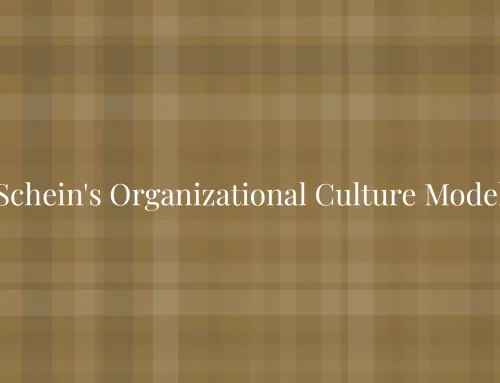In the competitive world of sales, success lies in effectively communicating the value of products or services to potential customers. The Value Selling Framework is a strategic approach that enables sales professionals to understand customer needs, demonstrate the unique value proposition, and ultimately close deals.
Value Selling Framework
The Value Selling Framework is a systematic process that helps sales professionals align their offerings with the specific needs and goals of their customers. Here are the key steps involved in this approach:
Customer Analysis
Sales professionals must thoroughly analyze their customers’ businesses, challenges, and objectives. This step involves active listening, conducting research, and asking probing questions to uncover pain points and opportunities.
Value Proposition
Based on the insights gained, sales professionals develop a compelling value proposition that addresses the specific needs of the customer. This involves showcasing how their products or services provide unique solutions, competitive advantages, or cost savings.
Benefits And ROI
The Value Selling Framework emphasizes the clear articulation of the benefits that customers will derive from the proposed solution. Sales professionals should quantify the return on investment (ROI) or cost savings that the customer can expect.
Objection Handling
Addressing objections effectively is crucial in sales. The framework equips sales professionals with strategies to anticipate and overcome objections, demonstrating the value of the proposed solution and building trust with customers.
Closing The Sale
Finally, the Value Selling Framework emphasizes the importance of a strong closing strategy. Sales professionals are encouraged to create a sense of urgency, reinforce the value proposition, and align the proposed solution with the customer’s objectives to secure the deal.
Example
Let’s explore a few real-world examples that highlight the application and effectiveness of the Value Selling Framework:
- Enterprise Software Sales: In this scenario, a sales professional selling enterprise software would conduct a detailed analysis of the customer’s business processes, pain points, and desired outcomes. They would then position their software as a solution that streamlines operations, improves productivity, and reduces costs. By quantifying the potential ROI and addressing objections related to implementation or customization, the sales professional can demonstrate the value and close the sale
- Medical Device Sales: Sales professionals in the medical device industry utilize the Value Selling Framework to address the unique needs of healthcare providers. By understanding the challenges they face, such as improving patient outcomes and reducing costs, the sales professional can position their device as a solution that achieves these goals. Demonstrating how the device offers enhanced functionality, ease of use, and cost savings through shorter procedure times can help secure the sale
Advantages
The Value Selling Framework offers several advantages for sales professionals:
- Customer-Centric Approach: By focusing on understanding customer needs, the framework enables sales professionals to tailor their pitch and offerings accordingly. This customer-centric approach enhances customer satisfaction and builds long-term relationships
- Differentiation: The framework emphasizes articulating the unique value proposition and differentiating oneself from competitors. By effectively communicating the benefits and ROI, sales professionals can stand out in a crowded marketplace
- Objection Handling: The Value Selling Framework equips sales professionals with objection handling strategies, enabling them to address concerns and build trust with customers. This helps overcome objections that may have otherwise derailed the sales process
Shortcomings
While the Value Selling Framework is highly effective, it does have a few limitations:
- Complexity: Implementing the framework requires significant effort and time. Sales professionals need to invest in understanding their customers deeply, researching industry trends, and developing tailored value propositions. This level of complexity may be challenging for sales professionals who are new to the framework or have limited resources
- Adaptability: The Value Selling Framework may not be suitable for all industries or sales scenarios. Some industries, such as fast-moving consumer goods (FMCG), may require a more transactional sales approach rather than a value-driven one. Sales professionals need to assess the suitability of the framework based on the nature of their products or services and the market dynamics
- Lack of flexibility: The framework provides a structured approach, but it may not allow for flexibility in certain sales situations. Each customer is unique, and their needs may vary. Sales professionals must be able to adapt and customize their approach to accommodate these variations. Over-reliance on a fixed framework may limit their ability to navigate unexpected challenges or respond to evolving customer demands
- Skill and knowledge requirements: The Value Selling Framework requires sales professionals to possess a deep understanding of their products or services, industry trends, and the competitive landscape. It also demands strong communication, negotiation, and problem-solving skills. Sales teams may require extensive training and development to fully leverage the framework’s benefits, which can be time-consuming and costly
Implementation Strategies
To maximize the benefits of the Value Selling Framework, sales professionals can consider the following implementation strategies:
Comprehensive Training
Provide comprehensive training to sales teams on the principles and techniques of the Value Selling Framework. This should include in-depth product knowledge, industry insights, effective communication skills, objection handling, and closing strategies. Regular reinforcement and practice sessions are essential to build proficiency
Tailored Value Propositions
Encourage sales professionals to develop tailored value propositions for different customer segments or industries. By customizing the messaging to address specific pain points and objectives, sales professionals can demonstrate a deep understanding of the customer’s unique challenges and position their offerings as the ideal solution
Collaborate With Marketing
Align with the marketing team to ensure consistent messaging and support materials that reinforce the value proposition. Marketing can provide valuable market research, competitive analysis, case studies, and other resources to assist sales professionals in effectively conveying the value of their offerings
Continuous Improvement
Encourage a culture of continuous improvement by regularly reviewing and refining the Value Selling Framework. Solicit feedback from sales professionals and customers to identify areas for improvement and incorporate new insights into the framework. This iterative approach ensures that the framework remains relevant and effective over time
Technology Enablement
Leverage sales enablement tools and technologies to enhance the implementation of the Value Selling Framework. CRM systems, sales analytics platforms, and interactive sales presentation tools can streamline the sales process, provide valuable data insights, and support sales professionals in delivering compelling value messages
While the framework offers significant advantages, it is important to acknowledge its limitations and adapt it to suit specific sales scenarios. With comprehensive training, tailored value propositions, collaboration with marketing, continuous improvement, and technology enablement, sales professionals can optimize the implementation of the Value Selling Framework and drive sales excellence. By embracing the customer-centric approach and leveraging the framework’s core principles, sales professionals can establish themselves as trusted advisors, build long-term relationships, and achieve sustainable success in today’s competitive sales landscape.




